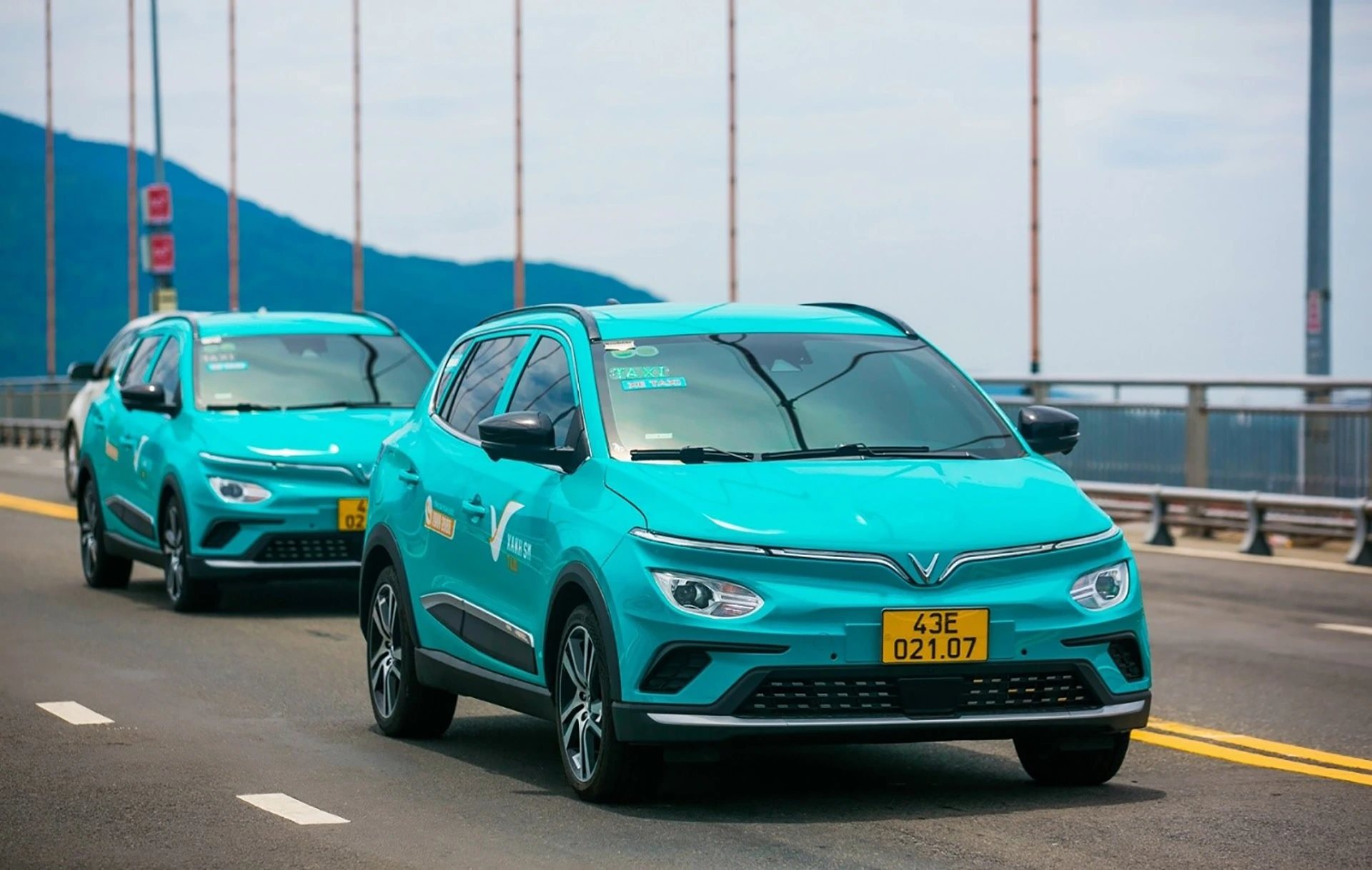
Specifically, Rakuten Insight’s research on the ride-hailing market revealed that 54-55% of Vietnamese customers use Grab (an application from a multinational company), while 32-33% use Xanh SM.
These findings come as a surprise, as previous research by Mordor Intelligence, a reputable market research firm, indicated that Xanh SM held the top spot in Vietnam’s ride-hailing market share with 39.85%, compared to Grab’s 35.57%.
So, who is truly leading the Vietnamese ride-hailing market?
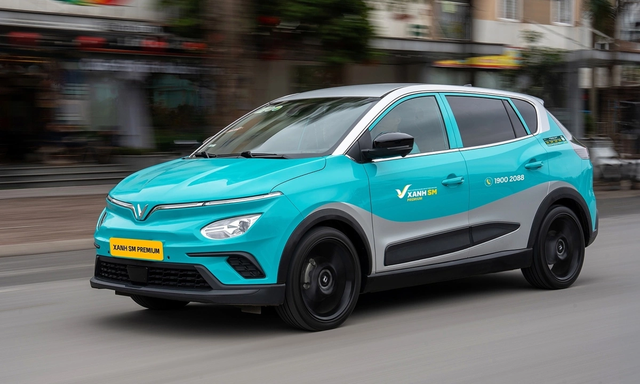
According to Mordor Intelligence, Xanh SM holds the largest market share in Vietnam.
Xanh SM: Vietnam’s Number One in Market Share
Vietnam’s ride-hailing and taxi market is witnessing intense competition between new platforms and traditional players, as well as between foreign and domestic brands. According to Mordor Intelligence (India), the Vietnamese ride-hailing market is estimated to reach a size of $1.05 billion this year and could grow to $2.56 billion by 2030, with a CAGR of 19.5% from 2025 to 2030.
Currently, Xanh SM holds the largest market share in the ride-hailing and taxi segment in Vietnam for Q1/2025, according to Mordor Intelligence, with 39.85%. Grab follows closely with a 35.57% market share. The gap between the first and second-ranked companies has widened to over 4 percentage points in just one quarter. In Q4/2024, Xanh SM held a 37.41% market share, while Grab had 36.62%.

Rakuten Insight’s research shows that Grab is the most frequently used application in Vietnam.
However, the latest report from Rakuten Insight, based on a survey of over 7,000 people in Vietnam, reveals that Grab is the most frequently used brand, with 55% of users in major cities and 54% in other areas indicating they use the application.
Xanh SM ranks second with 32% of national users, including 33% in major cities and 30% in other areas.
Following in the rankings are Be (9%), Mai Linh (2%), Vinasun (1%), and Maxim (1%).

Xanh SM is preparing to launch new services, including food delivery, cargo transport, and 7-seater vehicles.
Grab: The Most Frequently Used Application
It’s important to note that Rakuten Insight’s data reflects the frequent usage of applications, which may not directly correlate with market share in the ride-hailing segment alone. Grab has an advantage in this regard as their application integrates multiple functions, including passenger transportation (cars and bikes), delivery, food ordering, and grocery shopping. Meanwhile, other applications primarily focus on passenger transportation and delivery services.
Rather than focusing on frequent application usage regardless of purpose, as Rakuten Insight does, Mordor Intelligence uses different criteria to determine market share, including GMV/day (Gross Merchandise Volume per day), the number of daily trips, and network coverage.
When considering these criteria, the scales tip in favor of Xanh SM, which has rapidly expanded its network coverage and significantly narrowed Grab’s market share in recent times.

Grab has diversified its services for its users.
Established in 2023, Xanh SM quickly gained a foothold in the taxi market by focusing on the green mobility revolution and offering electric car and bike booking services in many provinces across the country.
The difference between Grab’s brand usage frequency and Xanh SM’s revenue market share in the passenger taxi segment can be attributed to Grab’s diverse range of services compared to Xanh SM’s current focus on mobility.
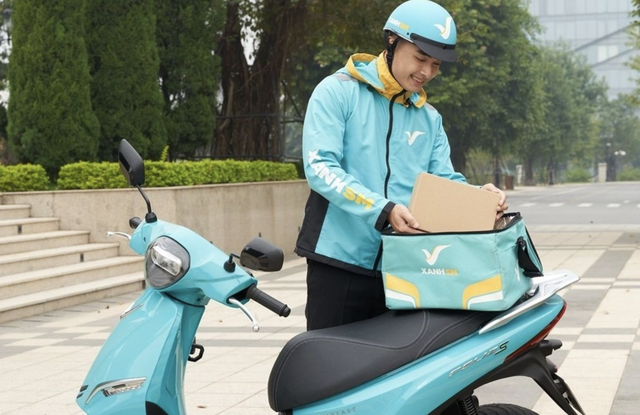
Xanh SM is testing its food delivery service, Xanh SM Ngon.
Grab’s diverse services, including those outside of passenger transportation such as delivery, grocery shopping, and food ordering, may contribute to their application being opened and used more frequently throughout the day for various purposes.
However, when considering revenue solely from passenger transportation trips, Xanh SM has shown superior performance in the last two quarters. Notably, Xanh SM is also venturing into the food delivery space with its pilot project, Xanh SM Ngon.

In conclusion, the latest market research from Mordor Intelligence and Rakuten Insight paints a comprehensive picture of Vietnam’s ride-hailing market:
– Grab, positioned as a “super-app” offering a diverse range of essential services, is the most frequently used application.
The New Game in the $1.05 Billion Tech Vehicle Market: Xanh SM Overtakes Grab, Be Remains Loyal to Super App, and the Entry of a Special Player
“2024 witnessed a significant restructuring phase following the exit of Gojek from the Vietnamese market in September, leaving a substantial 17% market share up for grabs (as indicated in the Q3 2024 report, ‘The Connected Customer’). This presented a unique opportunity for existing and new players to strategize and capture this newly available market share.”
The Battle for Survival: A Small Ride-Hailing App’s Struggle
Despite their best efforts to stay afloat, smaller ride-hailing apps are finding it challenging to gain traction and break through in the market. The odds are stacked against them as they compete with well-established players who have a head start in terms of resources, brand recognition, and network effects. It seems an uphill battle for these smaller players to make a significant dent in the industry and capture a substantial market share.

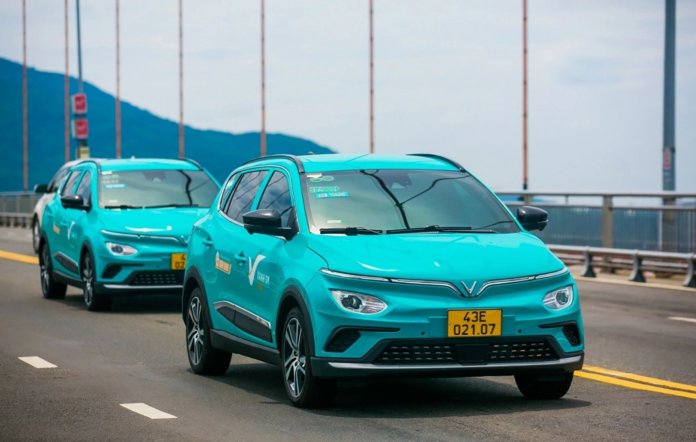

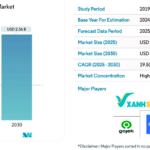
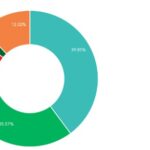



![[Photo Essay]: Experts, Managers, and Businesses Unite to Forge a Path Towards Sustainable Green Industry](https://xe.today/wp-content/uploads/2025/07/z678592918-218x150.jpg)












